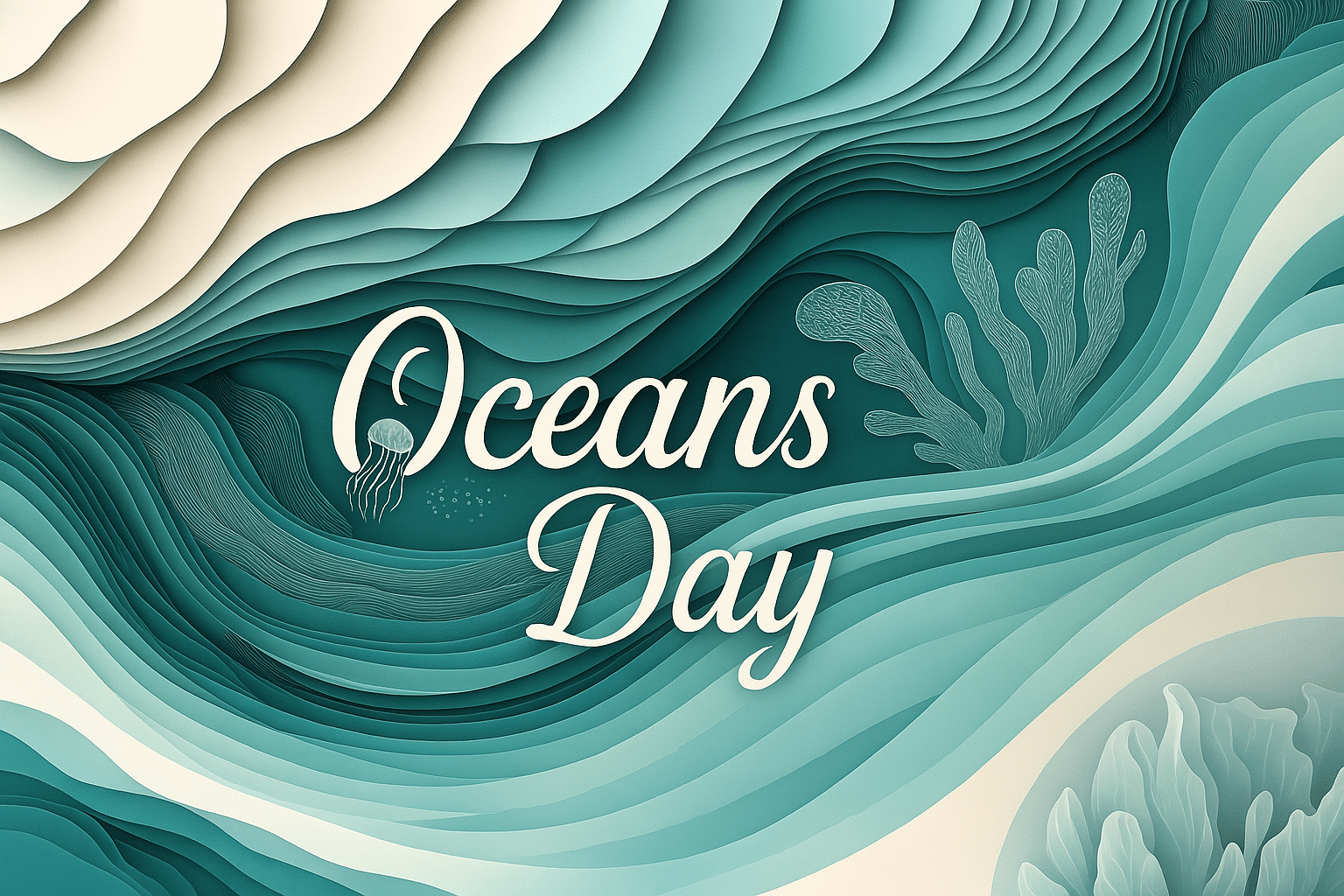What is World Oceans Day?
World Oceans Day, celebrated annually on June 8th, is a global event dedicated to recognizing the importance of the world’s oceans and promoting their conservation. This day emphasizes the vital role oceans play in sustaining life on Earth, including regulating the climate, providing food, and supporting biodiversity. It encourages actions to protect and preserve marine environments and raise awareness about the challenges facing the oceans.
History and Origin
World Oceans Day was officially recognized by the United Nations in 2008, but the concept was first proposed in 1992 at the Earth Summit in Rio de Janeiro. The day aims to unite people and organizations worldwide to celebrate the oceans and collaborate on initiatives to address issues such as pollution, overfishing, and climate change. It serves as a reminder of the critical need to safeguard the health of our oceans for future generations.
Who Celebrates World Oceans Day?
- Environmental Organizations: Host events, campaigns, and activities to promote ocean conservation.
- Educators and Students: Participate in educational programs and activities related to marine science and environmental protection.
- Governments and Policy Makers: Support and implement policies aimed at protecting marine environments.
- General Public: Engage in beach clean-ups, awareness events, and personal actions to reduce their environmental footprint.
- Scientists and Researchers: Share knowledge and findings about marine ecosystems and the impacts of human activities on the oceans.
Slogans and Themes
The themes for World Oceans Day focus on conservation, sustainability, and collective action. Slogans such as “Protect Our Oceans,” “Healthy Oceans, Healthy Planet,” and “One Ocean, One Future” highlight the interconnectedness of human activities and ocean health. These themes encourage global participation and emphasize the importance of taking action to preserve marine environments.
Colors, Symbols, and Patterns
Colors:
- Blue: Representing the vastness and depth of the oceans.
- Green: Symbolizing environmental protection and sustainability.
- White: Reflecting the purity and importance of clean oceans.
Symbols:
- Wave: Representing the dynamic and powerful nature of the oceans.
- Fish and Marine Life: Highlighting the biodiversity supported by ocean ecosystems.
- Earth: Emphasizing the global significance of the oceans.
Patterns:
- Water Ripples: Illustrating the movement and fluidity of ocean waters.
- Marine Life Motifs: Depicting various species found in marine environments.
Most Used Tags
- #WorldOceansDay
- #SaveOurOceans
- #OceanConservation
- #MarineLife
- #ProtectOurPlanet
How to Celebrate
- Participate in Beach Clean-Ups: Join or organize a local beach clean-up event to help reduce pollution and protect marine life.
- Educate Yourself and Others: Learn about the challenges facing the oceans and share this knowledge with your community through social media, talks, and discussions.
- Support Sustainable Seafood: Make informed choices about the seafood you consume, opting for sustainably sourced options.
- Reduce Plastic Use: Minimize your use of single-use plastics to reduce ocean pollution.
- Advocate for Policy Change: Support policies and initiatives aimed at protecting marine environments and reducing carbon emissions.
- Celebrate Marine Life: Visit aquariums, marine sanctuaries, or participate in virtual tours to learn more about ocean biodiversity.
- Donate to Ocean Conservation Organizations: Contribute to organizations working to protect and preserve the oceans and their ecosystems.
Importance of World Oceans Day
World Oceans Day is crucial for raising awareness about the vital role oceans play in the health of the planet and human well-being. It highlights the pressing need to address environmental challenges such as pollution, climate change, and overfishing. By celebrating this day, individuals and communities can take meaningful actions to protect marine environments, support conservation efforts, and ensure the sustainability of the oceans for future generations.
June 8: Oceans Day
Why do you keep falling for the same type?
Read the article Lovemaps: the hidden blueprint of our love.

